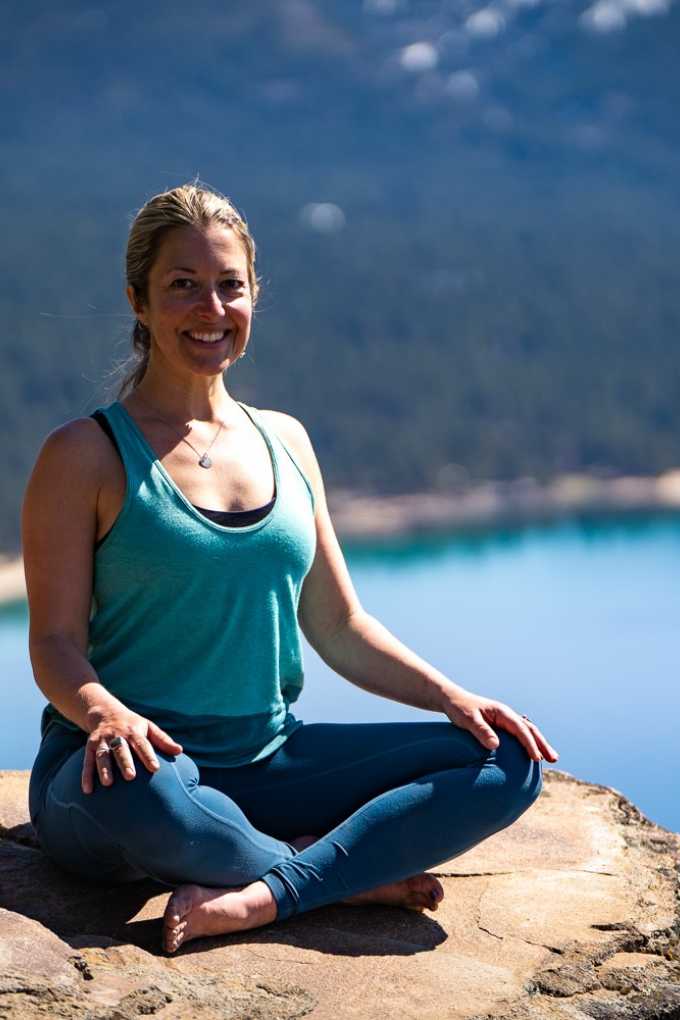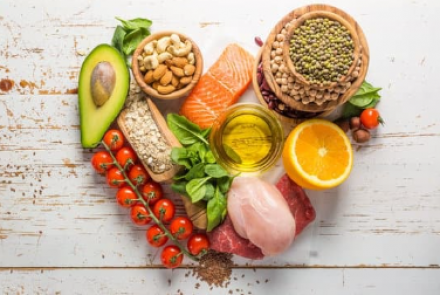
Center News
Heart Health Month
February is American Heart Health Month, a time when people of all ages are encouraged to focus on their heart health. Everyone has the power to protect against heart disease. Focusing on small changes such as, adding more movement into your days and eating healthy home cooked meals can go a long way.
This Heart Health Month we are offering Free Community Workshops Wednesdays. Workshops are from 12-1:00pm in the Eskridge Conference Room of the Main Hospital in Truckee. No pre-registration is required!
- February 7th – Blue Zones: Learn about heart healthy dietary recommendations taken from the world’s longest living populations with Lisa Fligor, MS, RDN
- February 14th – Strengthening and Stretching for Heart Health: Learn strength training and stretching exercises you can do at home for overall heart health with Quinn Lehmkuhl, Exercise Physiologist
- February 21st – Protect Your Peace: Setting Boundaries and Building Resilience, a mindfulness workshop that highlights and investigates ways to establish healthy boundaries and find balance with Justine Nelson, Mindfulness Instructor
- February 28th – Cholesterol Basics and Heart Disease: Learn about cholesterol and how to reduce your risk of heart disease with Erica Dastrup, APRN

Rethink Healthy: Coronary CT Calcium Scans
In honor of Heart Health Month, let’s discuss Coronary CT Calcium Scans. These scans are a low radiation CT scan of the chest that help clinicians gauge cardiovascular risk and decide on appropriate interventions. Because calcium shows up on CT scans (and the rest of the plaque doesn’t), we can use a Coronary CT Calcium Scan to identify calcium-containing plaque early, before it causes symptoms. The extent of calcium build up in the coronary arteries helps to predict the likelihood of a major coronary event (Kramer & Villines, 2022). This scan can be extremely helpful for the right subset of patients, but unnecessary for others. Appropriate candidates have either borderline, intermediate, or high 10-year risk of Atherosclerotic cardiovascular disease (ASCVD) (Kramer & Villines, 2022). If you have questions about your risk of ASCVD or heart attack, please talk to your health care provider. A Coronary CT Calcium Scan may play a role in understanding this important component of your health!

Center for Health Team
Rachel Durben – Registered Yoga Instructor
Since an introduction to yoga in college, Rachel has been exploring the depths of her personal yoga practice. She journeyed into the Costa Rican jungle to complete her first teacher training in 2015 and then went on to study at Vira Bhava Yoga in Nevada City, where she received her 500-hour certification in 2018. In 2022, she completed another 300-hour teacher training, Embrace Yoga’s Roots, with Susanna Barkataki, learning about yoga’s cultural history and connections with accessibility and social justice.
Rachel is a Registered Yoga Teacher through Yoga Alliance and holds a certification as a Continuing Education Provider. When not practicing or teaching yoga, Rachel works as a biologist and environmental planner for forest health and renewable energy projects throughout the Western U.S. Rachel has called Truckee home for over 10 years, and loves to hike, run, ski, paddle, and travel with her fiancée and their adventure pup.
Rachel is honored and grateful to support the Center for Health team and our beautiful community by expanding yoga and wellness programming for the Truckee-Tahoe region. She teaches locally at Tahoe Yoga and Wellness Center, Spirit Rebel Collective, Truckee Sanitary District, and the Tahoe Forest Center for Health. Here at the Center for Health, Rachel’s offerings include: monthly yoga classes for cancer patients and caregivers, monthly free classes for hospital staff, monthly free community classes, and private yoga classes.
To sign up or learn more about the yoga classes offered at the Center for Health, give us a call at 530-587-3769.

Upcoming Health & Wellness Events Programs & Classes
Be Heart Smart – Heart Disease Prevention
Did you know that heart disease is the number one killer of both men and women in the US? Join our Cardiac Rehab Dietitian, Lisa Fligor, MS, RDN as we discuss a variety of topics including; healthy fats, exercise recommendations, sodium intake, sleep needs and stress management techniques. This class is for you if:
- Have a family history of heart disease
- Your cholesterol been slowly increasing
- You experience high blood pressure
- Confused about what your lab values mean
- Tired of navigating all the advice on the internet
- Just curious about the latest in heart health research
*We recommend (but don’t require) you bring a recent (in the past 6months) lipid panel to class with you.
When: Monday February 5th, 5-7:00pm
Where: 10833 Donner Pass Rd Suite 102, Truckee, CA, 96761
Cost: $25 – includes one additional family member, Pre-registration required.
Raising Healthy Eaters – Toddler Edition
Nourishing a toddler is tough! Do you ever wonder if you’re ‘doing it right’ or curious on how to do it better? Join us for a one hour class, plus a 30 minute question and answer period covering these topics:
- How to handle picky eating
- Meal and snack ideas
- Nutrients of concern and foods to focus on
- Cracking toddler-code around food
- Intuitive eating for kids
- Tips for managing meal time battles
- Milk guidelines for the toddler years
Led by Lisa Fligor, Registered Dietitian Nutritionist.
When: Monday February 26th, 1-2:30pm, This class is offered in-person and virtually.
Where: 10833 Donner Pass Rd Suite 102, Truckee, CA, 96761
Cost: $35 per person, Pre-registration required.
Heart Healthy Recipes from the Blue Zones – Tahoe Forest Cooking Club
Get out of your cooking rut and come get INSPIRED at our monthly Health Supportive Cooking Club! Each month, our Registered Dietitian Lisa Fligor, MS, RDN, LD will provide a fun and interactive cooking demo. You get to taste test and take home easy, healthy, and delicious recipes! February is heart health month, so Lisa’s topic is Heart Healthy Recipes from the Blue Zones. The “Blue Zones” are regions where we find the worlds healthiest people – residents that live the longest with lowest rates of chronic disease. Join us as we explore recipes from these regions and learn how eating like the Blue Zones can protect our hearts.
When: Monday February 26th, 5-6:30pm
Where: 10833 Donner Pass Rd Suite 102, Truckee, CA, 96761
Cost: $30, Pre-registration required.

Recipe of the Month: Red Kuri Squash Soup
Ingredients
- 1 1/2 pounds red kuri or butternut squash, peeled and cut into 1-inch cubes (3 cups)
- 1/2 medium onion, coarsely chopped
- 1 bay leaf
- 1 medium fennel bulb, cored and cut into thin wedges
- 1 tablespoon extra-virgin olive oil, plus more for drizzling
- Kosher salt
- Freshly ground black pepper
- 1 tablespoon unsalted butter
- Chopped toasted pecans and small marjoram leaves, for garnish
Directions
- Preheat the oven to 375°F. In a large saucepan, combine the cubed squash with the chopped onion, bay leaf, and 3 cups of water, and bring to a boil over high heat. Cover and simmer over low heat until the squash is tender, about 20 minutes.
- Meanwhile, on a large rimmed baking sheet, toss the fennel wedges with the 1 tablespoon of olive oil. Season with salt and pepper and toss well. Roast for about 25 minutes, until the fennel is tender and starting to brown.
- Discard the bay leaf from the soup. Working in batches, puree the soup in a blender. Return the soup to the saucepan and warm over low heat. Stir in the butter and season the soup with salt and pepper. Ladle the soup into bowls and garnish with the roasted fennel, pecans, marjoram leaves and a drizzle of olive oil.
*Recipe courtesy of Alice Waters, Food & Wine
Makes 4 servings. Cook Time: 50 minutes. Print Red Kuri Squash Soup Recipe Cards and share with a friend!













